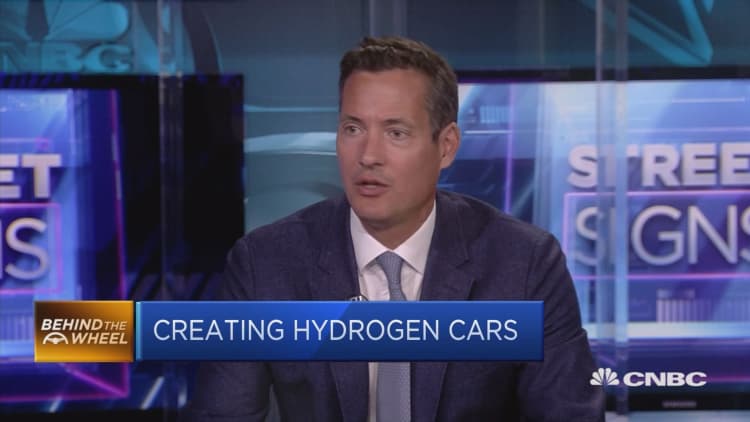Draft plans by the U.S. government to freeze rules on fuel efficiency are likely to be met with resistance by top automakers today.
Executives from Ford, General Motors and Fiat Chrysler, along with the U.S. heads of Daimler and Volkswagen, are set to attend a meeting with President Donald Trump at the White House.
The Trump administration is facing lawsuits from California and several other states after it proposed freezing fuel efficiency rules at 2020 levels until 2026. Environmentalists and Democrats want the Environmental Protection Agency (EPA) to stick to the continuous increase in standards that the Obama administration put in place.

And while U.S. auto firms have questioned the feasibility of reaching efficiency standards planned for 2025, they do not support a complete freeze.
Arndt Ellinghorst, head of global automotive research at Evercore ISI Group, told CNBC on Friday that auto bosses will tell Trump that sticking fast to 2020 standards will mean a huge waste of investment.
"They are spending a lot of money on electric vehicles. It is something that consumers want. If you now put targets in place that, let's say, kill the electric vehicle from a regulatory perspective, I think that makes the U.S. industry less competitive on a global scale," he said.
Ellinghorst said the auto industry has been spending more than any other on research and design and seeks a reliable and consistent regulatory framework.
"There is nothing worse than inconsistencies and changing of the targets because companies commit huge capital for a very long term," he added.
The autos analyst said freezing targets on fuel efficiency in the U.S. would disconnect the country from other global automakers, putting it at a competitive disadvantage.


